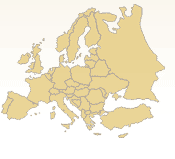Public calls for tenders: Tips and advice!
What documents are being published?
Apart from calls for tenders, also preinformations, supplementations, placed orders and other sorts of documents are being published. For indicating the type of document, the field TD ('type of document') is being used.
Who draws up the EC calls for tenders?
Producer is the office for publications of the EC-'EU-OP' in Luxembourg. The individual informations come directly from the authority of awards located in each of the member countries. EUR-OP organizes the input, classification, translation and publication.
What does the CPV-code stand for?
The CPV (common procurement vocabulary) has been developed by the GD XV of the EC. It comprises more than 8,000 product codes and is being used in case of calls for tenders in order to mark each of the products.
In which languages are calls for tenders available?
The calls for tenders are available in all 24 EC official languages.
Am I entitled to bid in all official languages?
The calls for tenders, apart from some exceptions, are being published in all official languages. You should, however, have in mind that informations regarding calls for tenders of the authority of awards have been mostly worded in their native language, and, generally, you are expected to lodge your tender in that language. Further informations offer the calls for tenders.
How strictly is the tender time allowed observed?
Very strictly. The tender times allowed are definitive and have to be observed most severely in order to avoid complications. For giving an example: If the 20th Dec 2015 is the deadline, an offer arriving the 21st Dec 2015 will not be taken anymore into consideration. Please pay also attention that the tender time allowed is the day the offer has to be with the authority of awards and not the postmark date. Therefore do consider the time for mailing. As tenders are considered confidential the authorities of awards, in principle, do not accept tenders via fax or e-mail. For details see the tender document.
Am I entitled to negotiate with the authority of awards?
Normally not. The public order management is a very formal business that does not admit any negotiation. The authority indicates what is in need. Tenders are being presented, and, the evaluation concluded, the bidder who has got a contract will be named.
Our customers have reported about different experiences regarding the requirements on fixed specifications. Normally, specifications cannot be negotiated even if, for example, you may have the opportunity for proposing a better technology. If you have proposals for modifications, do read carefully the specifications whether a suggestion for improvement is at all justifiable.
Is my tender binding in law?
Yes. Generally, tenders which have been lodged on the basis of public calls for tenders are considered bound by law. If you have lodged a tender which has been accepted you will neither be entitled to revoke it nor to alter prices. But even in case of necessity, there will, and this is the norm, arise a fine. Quite often you will find also the notice in the tender documents: 'Binding time allowed: Three months'. This means that your tender will be binding for three months starting from the date of presentation.
It would be advisable to work out your tender very carefully. You should also evaluate exactly all subcontract costs which may occur. You are advised as well to ponder carefully whether you are able to deliver in time what is required. Do pay attention to building and service orders for having also the staff available in situ you need.
How much does it cost to lodge a tender?
Generally, lodging a tender is free of charge. However, the last years' experiences have shown that private enterprises under-estimate quite often the costs of preparation for presentation. The elaborating of a tender including the allocation of all necessary documents results quite often in increasing personnel expenses. This has to be taken into consideration before taking the decision whether to bid or not.
My Tender has been accepted! Can I rely on payment?
Enterprises having successfully taken part in calls for tenders do confirm that the methods of payment within the public order management differ from those methods of private industry. In contrast with private industry, there are however quite often longer delays. This is why you should not depend on a prompt payment. Nevertheless, the public order management may be regarded as a 'safe' bargain because the payment is mostly guaranteed due to the public status of the authority of awards.
